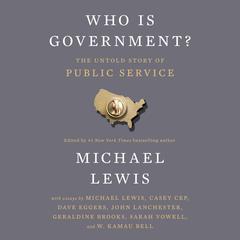 Play Audiobook Sample
Play Audiobook Sample
Who Runs the Church?: 4 Views on Church Government Audiobook
 Play Audiobook Sample
Play Audiobook Sample
Quick Stats About this Audiobook
Total Audiobook Chapters:
Longest Chapter Length:
Shortest Chapter Length:
Average Chapter Length:
Audiobooks by this Author:
Publisher Description
Churches have split and denominations have formed over the issue of church government. While many Christians can explain their church's form of rule or defend it because of its "tried and true" traditions, few people understand their church's administrative customs from a biblical perspective.
Who Runs the Church? explores questions such as: What model for governing the church does the Bible provide, and is such a model given for practical or spiritual reasons? Is there room for different methods within Christianity? Or is there a right way of "doing church"? And, finally, how (and by whom) should the church be governed?
Four predominant approaches to church government are presented by respected proponents:
- Episcopalianism - represented by Peter Toon
- Presbyterianism - represented by L. Roy Taylor
- Single-Elder Congregationalism - represented by Paige Patterson
- Plural-Elder Congregationalism - represented by Samuel E. Waldron
As in other Counterpoints books, each view is followed by critiques from the other contributors, and its advocate then responds.
Download and start listening now!
Who Runs the Church? Listener Reviews
Be the first to write a review about this audiobook!
About various authors
P. J. Ochlan is an Audie Award–winning, multiple Earphones Award–winning, and Voice Arts Award–nominated narrator of hundreds of audiobooks. His acting career spans more than thirty years and has also included Broadway, the New York Shakespeare Festival under Joseph Papp, critically acclaimed feature films, and television series regular roles.










































